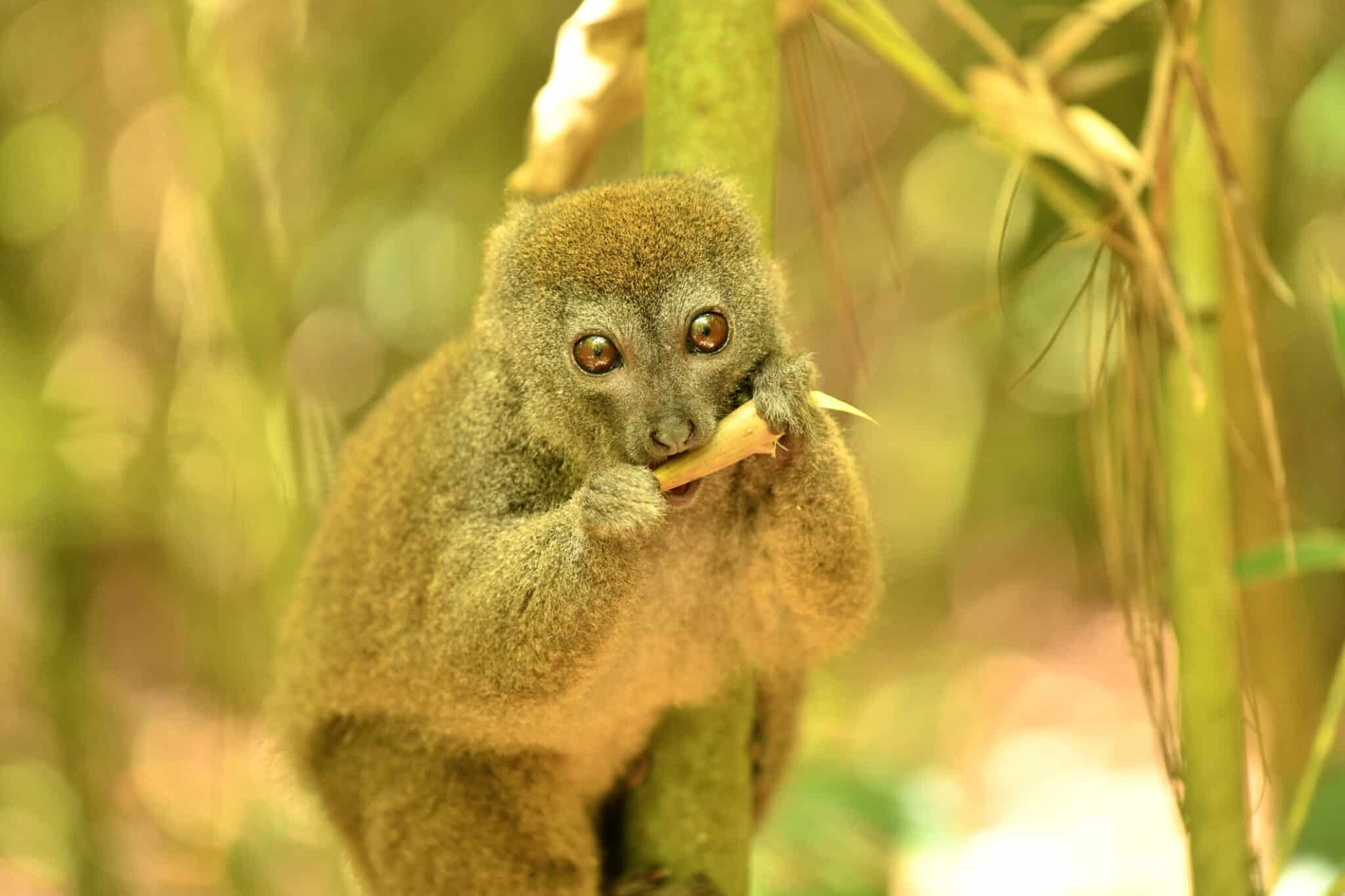Climate Crisis and Deforestation Are Bringing Tree-Dwelling Primates Down to Earth

 Why you can trust us
Why you can trust us
Founded in 2005 as an Ohio-based environmental newspaper, EcoWatch is a digital platform dedicated to publishing quality, science-based content on environmental issues, causes, and solutions.
San Diego Zoo Wildlife Alliance postdoctoral associate Timothy Eppley, Ph.D., was observing southern bamboo lemurs in Madagascar when he noticed something odd. Usually, these lemurs spend their entire lives in the trees. But in places where their forest habitat had been thinned by human activity, the primates would risk descending to the ground to search for food or even sleep, Eppley told The Washington Post.
Was he witnessing evolution in action? Eppley conferred with his colleagues and eventually assembled a team of 118 scientists from 124 institutions who had spent time observing primates in Madagascar and the Americas. Their findings, published in the Proceedings of the National Academy of Sciences Monday, reveal that normally tree-dwelling primates impacted by the twin pressures of climate change and deforestation are starting to spend more time on the ground.
“This study began with a discussion among colleagues about how we’d noticed certain populations of arboreal primates spending more time on the ground,” Eppley said in a San Diego Zoo Wildlife Alliance press release. “Yet at sites with relatively less disturbance, members of the same species may never descend to the ground.”
The research was based on more than 150,000 hours of observation of 15 lemur species and 32 monkey species at 68 sites in the Americas and Madagascar. The reason it focused on these two areas is because many primates in Asia and Africa had already evolved to be more terrestrial than arboreal millions of years ago, The Washington Post pointed out. However, what the researchers are observing today is unique in its speed and its cause.
“What we’re seeing now is largely anthropogenically induced,” Eppley told The Washington Post. “This is happening so fast.”
Study co-author Giuseppe Donati of Oxford Brookes University in the UK explained how deforestation and rising temperatures could interact to force these changes.
“In most tropical countries where these species live, humans log the forest,” he told New Scientist. “This creates gaps and it opens the canopy of the forest. That causes an increase in temperature. The deforestation is working together with climate change [to force primates to the ground].”
For example, the bamboo lemurs that started Eppley’s questioning now spend around half of their time awake on the ground grazing the grass like cows, Donati said.
There were other factors that predicted whether a primate might move towards the ground. These included eating less fruit and spending time in larger groups.
The research offers some hope that at least some primates may be able to adapt to human activity in the short term, but it’s complicated.
“Primates in Madagascar are already the most threatened in the world, but studies like this show us that they may be able to find refuge from the worst climate changes by flexibly adapting to spending more time in areas with lower temperatures,” Bournemouth University in the UK behavioral ecology professor Amanda Korstjens, who was not a study co-author, told The Washington Post in an email. “But the study also highlights the importance of preserving healthy forest habitats to allow primates to use the limited options they have to manage global warming.”
Indeed, the study also found that the primates were less likely to descend from the trees when human infrastructure like roads were close by.
“This finding may suggest that human presence, which is often a threat to primates, may interfere with the natural adaptability of the species to global change,” study senior author Luca Santini, Ph.D., from Sapienza University of Rome, said in the press release.
Ultimately, Eppley did not think evolution could move fast enough to protect the studied species from human interference.
“None of the species we studied are likely to fully transition to a terrestrial lifestyle. It’s simply not a viable long-term outcome to happen in such a short period of time,” he told New Scientist. “We need to actively protect the forest habitat that we currently have.”
Subscribe to get exclusive updates in our daily newsletter!
By signing up, you agree to the Terms of Use and Privacy Policy & to receive electronic communications from EcoWatch Media Group, which may include marketing promotions, advertisements and sponsored content.

 233k
233k  41k
41k  Subscribe
Subscribe 




